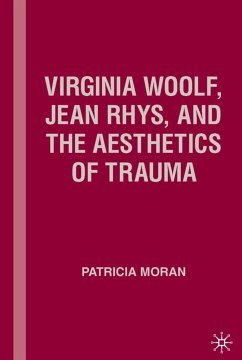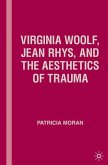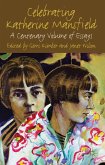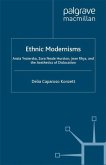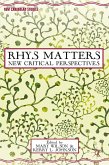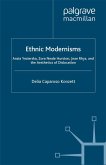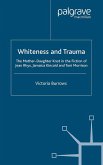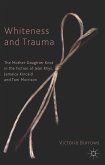This is a study of modernism, sexuality, and subjectivity in the work of two leading women modernists. Each confronted the aspects of her culture and personal history that resulted in a degraded sense of female sexuality and explored how traumatic childhood sexual experiences informed their relationship to female corporeality and fiction-writing.
'What a bold, scintillating, and provocative study! Moran's work on the aesthetics of trauma in Woolf and Rhys makes a significant contribution to the field of modernist inquiry and trauma studies. Grounded in a feminist critique of shame and masochism, this book sends Woolf's phantom 'Angel in the House' packing and definitively evicts corporeal anxiety and creative guilt from the house of women's fiction.' - Suzette Henke, Thruston B. Morton Professor of English, University of Louisville
'With its focus on sexual trauma as a cause for a differing aesthetics, Moran's study stands as an extremely important contribution to the critical literary fields of modernist female aesthetics and sexual trauma. Moran supports and extends critical work such as Suzette Henke's Shattered Subjects (1998), Doane's and Hodges's Telling Incest (2001), and Miriam Fuchs's The Text is Myself (2004). She brings a larger and more particular scope to these studies, by extensively connecting Woolf's and Rhys's 'damage' to psychoanalytic theories, sexology, and abuse survival. Moran understands both Woolf's and Rhys's traumas through a focus on early 20th-century psychoanalysis. She places Woolf's work on sexuality in contrast with the contemporaneous work on sexology and reads Rhys's trauma through theories of childhood abuse. With its intrepid investigations into an 'aesthetics of damage,' this is an ambitious and successful book." - Georgia Johnston, Associate Professor of English, Saint Louis University
'With its focus on sexual trauma as a cause for a differing aesthetics, Moran's study stands as an extremely important contribution to the critical literary fields of modernist female aesthetics and sexual trauma. Moran supports and extends critical work such as Suzette Henke's Shattered Subjects (1998), Doane's and Hodges's Telling Incest (2001), and Miriam Fuchs's The Text is Myself (2004). She brings a larger and more particular scope to these studies, by extensively connecting Woolf's and Rhys's 'damage' to psychoanalytic theories, sexology, and abuse survival. Moran understands both Woolf's and Rhys's traumas through a focus on early 20th-century psychoanalysis. She places Woolf's work on sexuality in contrast with the contemporaneous work on sexology and reads Rhys's trauma through theories of childhood abuse. With its intrepid investigations into an 'aesthetics of damage,' this is an ambitious and successful book." - Georgia Johnston, Associate Professor of English, Saint Louis University

